Building a Better Blue
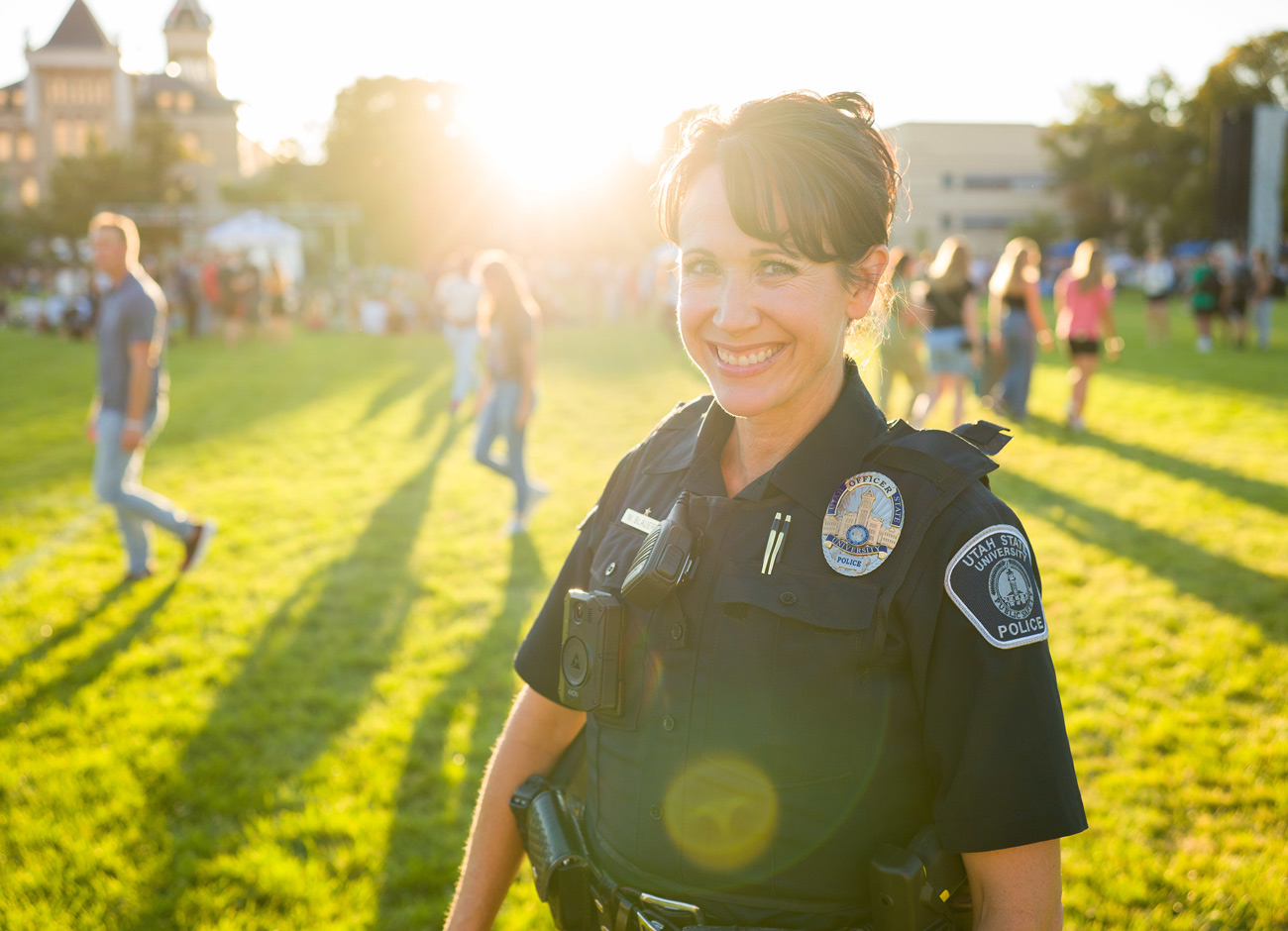
In recent years, advocates have called to “defund the police” or to “back the blue.”
The topic of police reform often comes politically charged or laden with preconceived ideas. But embedded within both slogans is agreement — the status quo is not working.
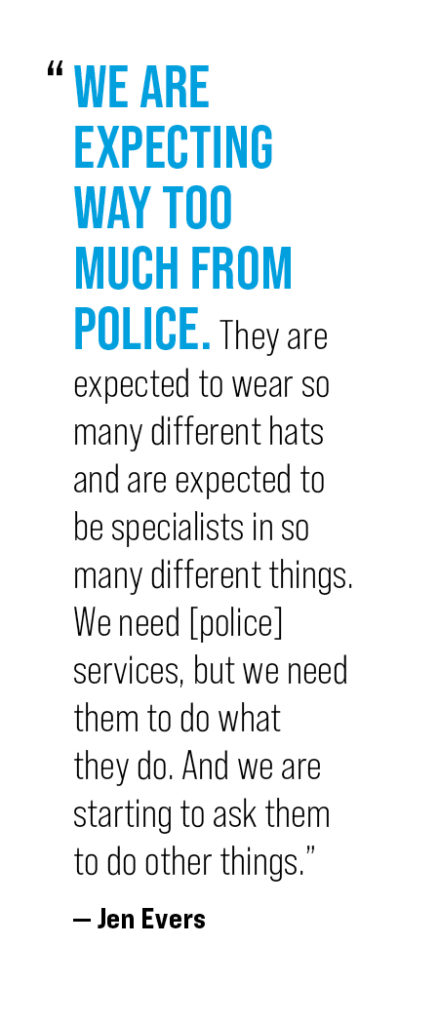
And we see that first in polling. In 2020, public support for police dipped to its lowest level in the United States — a finding tied to the killing of George Floyd, an unarmed Black man who died after a White officer pinned his neck for nine minutes while other officers looked on. Floyd’s death triggered protests nationwide demanding accountability for police misconduct. However, overall support of the police remains strong.
One has to look no further than another high-profile incident involving law enforcement to understand why. On Jan. 6, 2021, a vastly outnumbered police force defended the U.S. Capitol and the lawmakers inside, saving lives and the peaceful transfer of power following the 2020 Presidential election.
Public opinion of police also rebounded as concerns of violent crime rose. A 2021 survey by the Pew Research Center found that nearly 75% of respondents felt confident that police act in the best interest of the public, as well as widespread support for police reforms such as requiring officers to learn nonviolent alternatives to deadly force and giving civilian oversight boards power to investigate wrongdoing. So, it appears common for people to both support the police and ask them to do better.
A second indicator that improvements are needed are health outcomes of law enforcement. About 80% of police suffer from chronic stress, and more officers die by suicide each year than in the line of duty. They are also more likely to get divorced and struggle with alcohol abuse — and that serves no one.
Lastly, many police departments spend a significant amount of time responding to social service-related calls rather than trying to prevent or solve serious crimes.
However, improving modern policing is no easy fix. Each department has its own culture and training requirements. And many problems facing police and the communities they serve have only magnified as mental health issues have surged in recent years. Police are increasingly called to take on problems they are not adequately equipped to handle.
“We are expecting way too much from police,” says Jen Evers, a clinical associate professor of social work at Utah State University Moab. “They are expected to wear so many different hats and are expected to be specialists in so many different things. We need [police] services, but we need them to do what they do. And we are starting to ask them to do other things and I think that’s why we run into problems.”
MAKING THE CONNECTION
One path forward may be using community-based alternative crisis response systems. A growing number of cities are experimenting with programs like CAHOOTS (Crisis Assistance Helping Out On The Streets) in Oregon that divert calls related to homelessness, public intoxication, or non-emergency medical care to teams of crisis workers and medics.
A recent study assessing Denver’s Support Team Assisted Response program found that deploying mental health specialists for certain types of nonviolent calls lowered reported crimes by 34%. It also saved money. Community-based crisis alternatives may help save lives, too. In 2015, the Washington Post began tracking police shootings and found more than 25% involve individuals with mental illness.
Last year Evers worked with the Moab Police Department to start a community-based program with USU social work students. She sees it as a needed bridge between two professions that would benefit from increased cooperation.
“I am excited about it because I feel like this is where things need to go,” she says. “We have an oversimplified system for a very complex society.”
Evers argues that when police take on more of the load it gives the false impression that more can be done with resources already stretched thin. Integrating a community-based response program could help if it’s tailored to the specific needs of a town. Because not every call needs to be answered with a gun and handcuffs.
Evers is not alone in thinking that social workers and law enforcement should be more closely aligned.
Law enforcement may be first on scene, but social workers can more effectively connect people to services they may need and intervene with best practices, says Derrik Tollefson, professor of social work and director of USU’s I-System Institute for Transdisciplinary Studies..
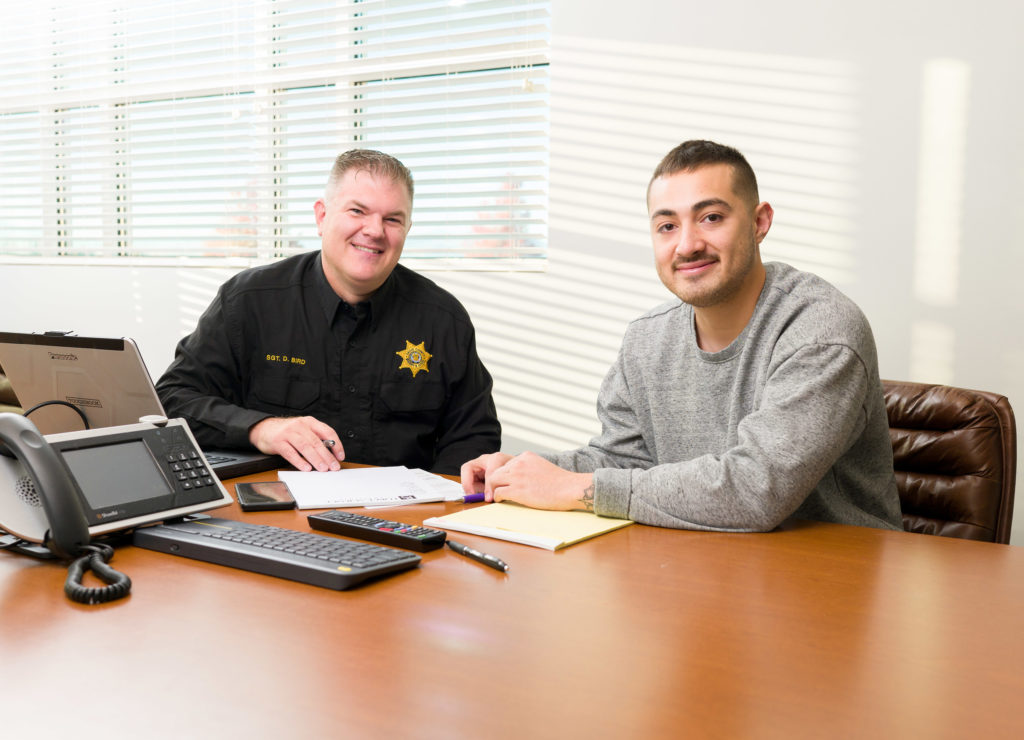
In 2021, the Utah Legislature awarded USU $550,000 to launch a cross-training program for criminal justice and social work majors. The funding enabled USU to place social work interns in two police departments and provide “I-System Training for Law Enforcement and First Responders” developed through the university’s I-System Institute for Transdisciplinary Studies.
Jonah Swenson ’21 was the inaugural social work intern at the Cache County Sheriff’s Office and was eager to step into the role. He started in the wake of George Floyd’s death as advocates called for increased integration of social work into public safety. But there is no one model to follow, and Swenson and sheriff’s office leadership needed an approach that fit the needs of the county and the department.
“We were kind of trailblazing this internship,” Swenson explains.
In the sheriff’s office Swenson conducted assessments, followed up with individuals after calls for service, and coordinated care with regional support organizations.
The goal was to dialogue as a team, he says, “to see where in the pipeline can we help these individuals get care? Can we put in better safety nets? We don’t like seeing these repeat offenders coming to jail and not getting the services they need.”
Establishing the internship program required buy-in from leadership in the sheriff’s office who could envision how social workers might integrate into the department. This was not exactly an easy sell.
“We have historically frowned on interns because they provide no value to us — no offense,” explains Mikelshan Bartschi, a lieutenant in the Cache County Sheriff’s Office. “It was additional work for us.”
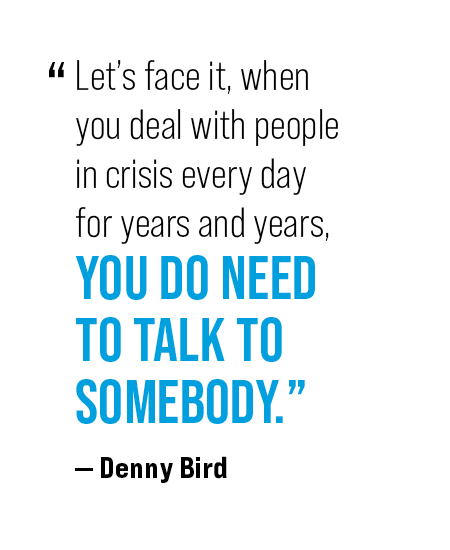
But he saw promise in resilience training and could see that social workers might relieve the problem of “mission creep” he sees in law enforcement today.
“My job is to hunt predators,” says Bartschi, “Eighty percent of the people we are dealing with aren’t real criminals.”
He wants to spend more time focusing on the 20% who are. But that means collaborating with community partners more equipped to handle the social services side.
“We were owning way too much of this problem,” Bartschi says. “Our job is to be impartial fact finders. Our job is to assess risk and danger. And our job when others can’t gain control is to gain control. … The ongoing management of people should not be our domain.”
He brings up the movement to Defund the Police and its slogan, which became a rallying cry in protests in 2020.
“The catch phrase ‘defund the police’ is a silly idea,” he says flatly. “That catch phrase is terrible.” But, he continues, “some of the ideas weren’t wrong.” The movement required “a re-examination of what we are doing. What was taking place. What was working, what wasn’t working.”
Bartschi hired the department’s first social work intern. Swenson began coordinating with groups like Bear River Health Department and implementing evidence-based de-escalation training for officers. The experience required Swenson to embed himself in the department and learn the culture and language of law enforcement. That enabled him to build a rapport with officers and open the door to constructive conversations.
“We are a great generation [of social work students] — very passionate about advocacy and human rights,” Swenson says. “But I think it takes sometimes coming to an understanding of both sides a little bit more … to bring about real change.”
He hopes to see the partnership with the sheriff’s office continue and more public safety agencies welcome social workers onto their teams.
“There are so many students at USU that have these interests,” he says.
BUILDING RESILIENCE
In psychology, resilience is the ability to respond to difficult or traumatic events and return to baseline. Being resilient is important for one’s health and something that can be nurtured. This is where USU’s I-System training could prove valuable to first responders who often work night shifts with disrupted sleep cycles and frequently witness people in their darker moments.
Because it’s typically not during the crisis that we break, Tollefson explains, but in the quieter moments afterward.
“We all have innate reserves of resilience that can get depleted over time and degrade our judgement.”
And when that occurs, relationships at home, with one’s community, or with oneself can suffer.
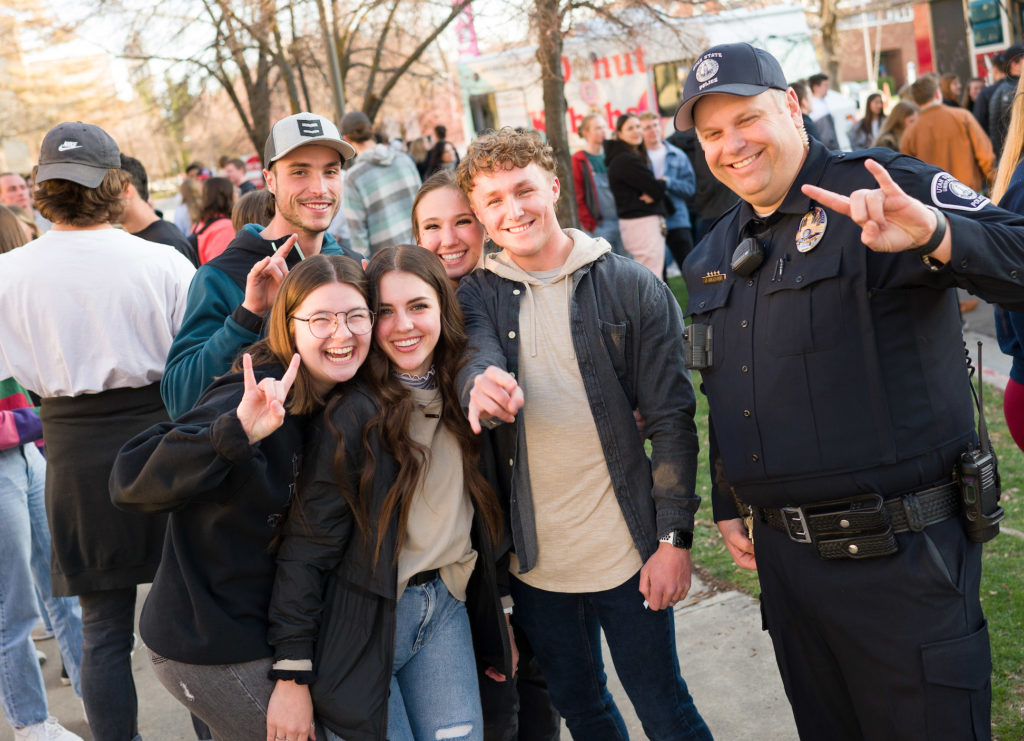
“Members of law enforcement die by suicide at a rate three to four times more often than they do at the hands of the bad guys,” Tollefson says. “This is not okay.”
And it’s no secret. Increasingly, police departments are prioritizing officer health. Several law enforcement agencies throughout Utah have participated in I-System training. As of January 2023, the institute has trained around 400 officers statewide. “The days of ‘suck it up and deal with it’ — those days are fading,” he says. “It’s time to try something new.”
Denny Bird, a sergeant in the Cache County Sheriff’s Office and father of three, welcomes the change. He has served in law enforcement for 22 years and believes resilience training is vital for the profession, but it’s something that will likely take time to gain acceptance. For generations of police officers, he says, going to therapy was simply not discussed.
Bird spent most of his career working as a school resource officer or investigating cases of rape and child abuse. That is when he first saw how social workers help survivors get the services they need to thrive in the aftermath. Last fall, he enrolled in USU’s master of social work program to provide crisis therapy for survivors, first responders, and their families.
“Let’s face it, when you deal with people in crisis every day for years and years, you do need to talk to somebody,” Bird says. “It’s really difficult for first responders to go in to talk to somebody, and have them truly understand where they are coming from, and then trust what they are talking about will stay confidential.”
The I-System training is not therapy. And it’s not a check-the-box-and-leave-it behind activity. It’s an everyday practice that requires being vulnerable about the things that make us uncomfortable.
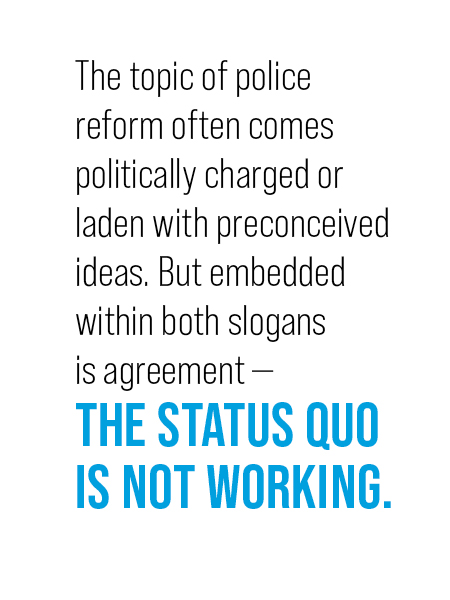
When one maps their individual I-System, they identify their requirements — these are simply mental rules we have about how we think we and the world should be. And when a requirement such as ‘I should feel safe’ is violated, it can leave people feeling unmoored or in a disregulated state.
Through simple mapping exercises, one comes to see how their I-System interferes with their ability to self-regulate. And through simple practices, they can function more optimally.
“It’s really about empowering [officers] to self-assess better and be aware of what may be driving some of their decision making, and then how they can, we use the words of the Identity system, ‘meet the moments,’” Bartschi explains. “Because this job is all about being in the moment, maintaining an external focus so you can problem solve and effectively think.”
Some of the I-System practices can help with de-escalation when applied by officers in the field or on themselves. Bird has witnessed the benefits firsthand.
For instance, if an officer is heading to a domestic violence call, they may start recalling similar instances where they were involved in a fight and fall into the reactive part of the brain, he explains. “Something needs to help us ground, something needs to bring us back. … Using I-Systems training can help get officers out of that so they can be thinking more clearly when they get on scene.”
He recently used it to connect with a person throwing rocks at a house who appeared to be on some type of substance. Initially the man was not responsive to voice commands, but Bird guided him through a series of sensory exercises and the man began to engage. Bird is still amazed when the process works.
“It’s like a switch,” he says.
And when it doesn’t work, it teaches you something too, Bird explains. Perhaps this person is not in a condition to respond. Maybe they are a danger to themselves or others. This helps officers determine their next steps, knowing they tried other tactics first.
“Most of us don’t like contention,” he says. “But that is required of us sometimes.”
Trainings like this may make physical altercations less likely.
SHAPING THE CULTURE
London McBride ’99 is a people person. Quick to smile. A youth pastor still known as “coach” to athletes he mentored decades ago who became a police officer more by chance than calling.
“My job wasn’t to go out there to make people have a bad day,” he says. “I got out of the car.”
It’s a mentality he’s passed down to trainees of the UCLA Police Department.
“I taught my trainees you need to be part of a community, not against it,” McBride says.
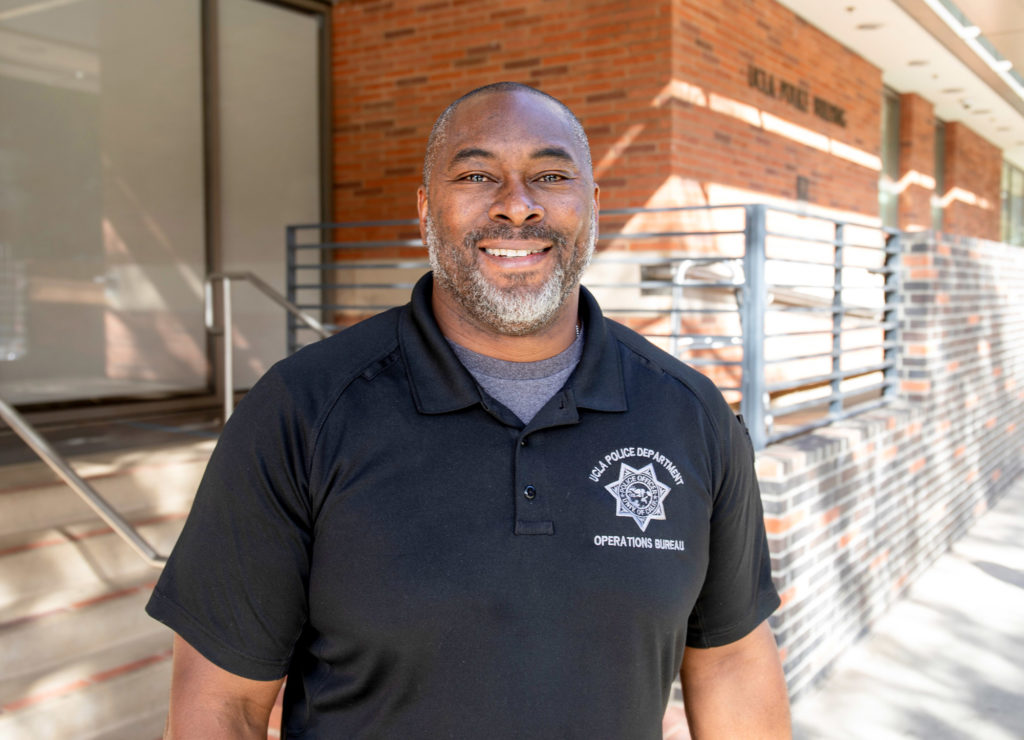
Students know him only as London.
“No one calls me Officer McBride,” he says laughing. “And that’s important because they know they can trust London. And when they need help, they call London because London has the resources to help. There is a level of trust and there is no fear.”
McBride learned the importance of that from a civilian staff member in his department named Nancy Greenstein.
“She pointed out that the officers that went to the birthday parties, who were out in the public eye more, they were the ones who, when bad things happened, solved more of the crimes,” he says.
The reason?
“[People] didn’t look at them as cops,” McBride says. “They looked at them as … the person in the community who had the resources to make the problems go away.”
The first hint that McBride was destined for a career in public service emerged while playing football for Utah State from 1995 to ’98. He points to mentors — academic and athletic — who shaped his views of leadership. People like retired history professor Ross Peterson ’65, former sociology professor Andy Dick, and and former football coach Todd Littlejohn.
“Seeing how they led and how they treated people, I think it gave me a heart for people,” McBride says.
At Utah State, he and other players would read at local schools. Sometimes McBride hung out with kids having a bad day who needed someone to sit with at lunch. The experience “allowed me to really take a step out of this whole ‘I’m a football player’ mentality and realize my true heart was in helping people,” he says. “But I still didn’t know what that looked like.”
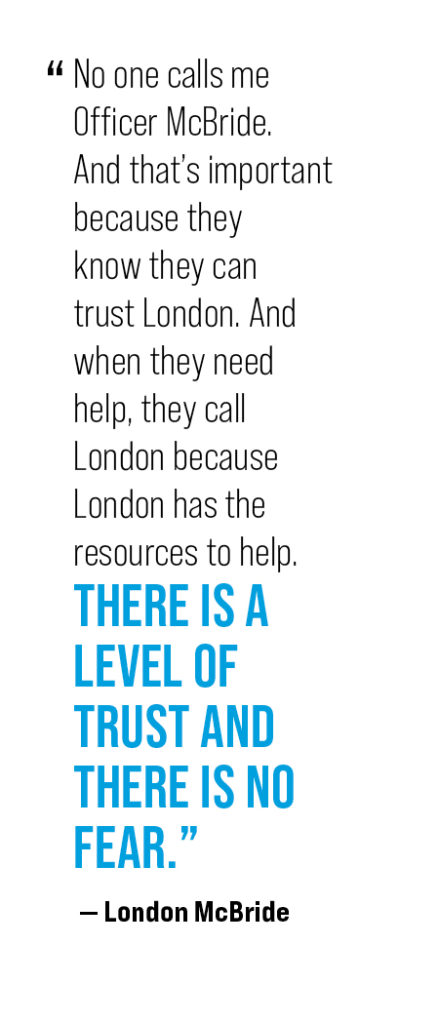
After graduating, McBride worked out with the Seahawks but they did not sign him. He played a year for the Los Angeles Dragons, a former Spring Football League team, but realized football was no longer the focus of his life. He taught high school physical education before landing a job at UCLA’s physical therapy unit working with patients recovering from heart attacks and lung transplants and terminally ill children. Those experiences gutted him — but in a good way, he says.
McBride pivoted to policing after meeting some UCLA officers who encouraged him to join the force. He’s served as a patrol officer, detective, and most recently in crime prevention where he works to build a community of trust.
And trust is something McBride feels has eroded on the national level with the death of George Floyd. As a Black officer and the father of five boys, the incident shook him. For McBride, the spotlight on policing identified issues that some departments haven’t yet reckoned with such as racism in the ranks. He points to the history of American policing, particularly in the South, which involved searching for runaway slaves. McBride recently revamped his department’s racial bias and implicit bias training to reflect the profession’s early history.
Usually, in the training it’s a blurb about civil rights, he explains. “Just a blurb and then it’s over. And so, I went in with the history — the real history of policing — and then the trauma that it causes these different communities. And I was like, ‘has anyone heard this?’”
No one had.
“This is what you should know,” he told them. “People don’t know the history, and if you don’t tell them, then they will never know what to change.”
But building trust, or rebuilding trust, requires doing things differently. McBride co-founded the organization Police Against Racism in 2020 to facilitate the process. The group includes retired and active duty officers who participate in community workshops to listen how police can serve them better. McBride, along with the Museum of Tolerance and other subject matter experts, is currently rewriting the racial profiling curriculum used statewide in California. However, his work is not always well received by colleagues.
“But I keep pushing,” McBride says.
Because the potential impact will be felt long after he is gone.
“When you get into law enforcement, what you deal with is the culture, but you don’t have to accept that culture, he says. “When [recruits] come into the interview phase they are a little naive. They are all ‘I just want to change the world.’ What they don’t realize is you’re stepping into a culture that can eat that up.”
Most people get into the profession because they want to make a difference, McBride says.
He believes that means not falling into the warrior mentality of us versus them.
“Really trying to go in and changing the culture, it is a challenge,” he says. “I think it’s doable. But it is really stripping away the identity of policing and who they are wrapped up in this profession. It involves not buying into the culture, but truly changing it by being different.”
This is where he sees leadership playing a vital role. They can change the incentives and set the flags down the field. But chiefs need to be OK if people walk away from the job, McBride says. “For every one that you lose because you are saying ‘I’m changing the culture,’ there are 5 or 10 more that would love to jump in and be the superhero in somebody’s life.”
By Kristen Munson
Photos by Levi Sim




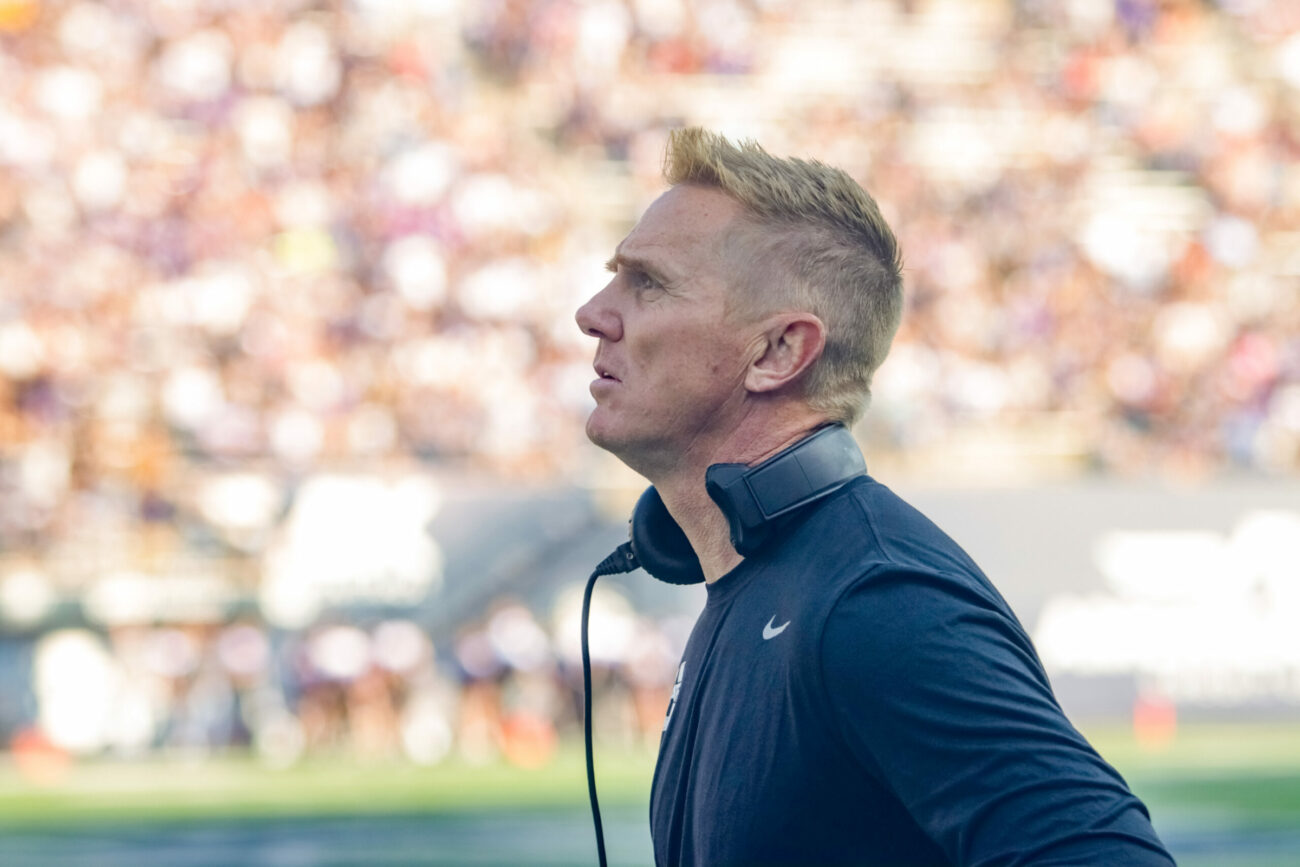
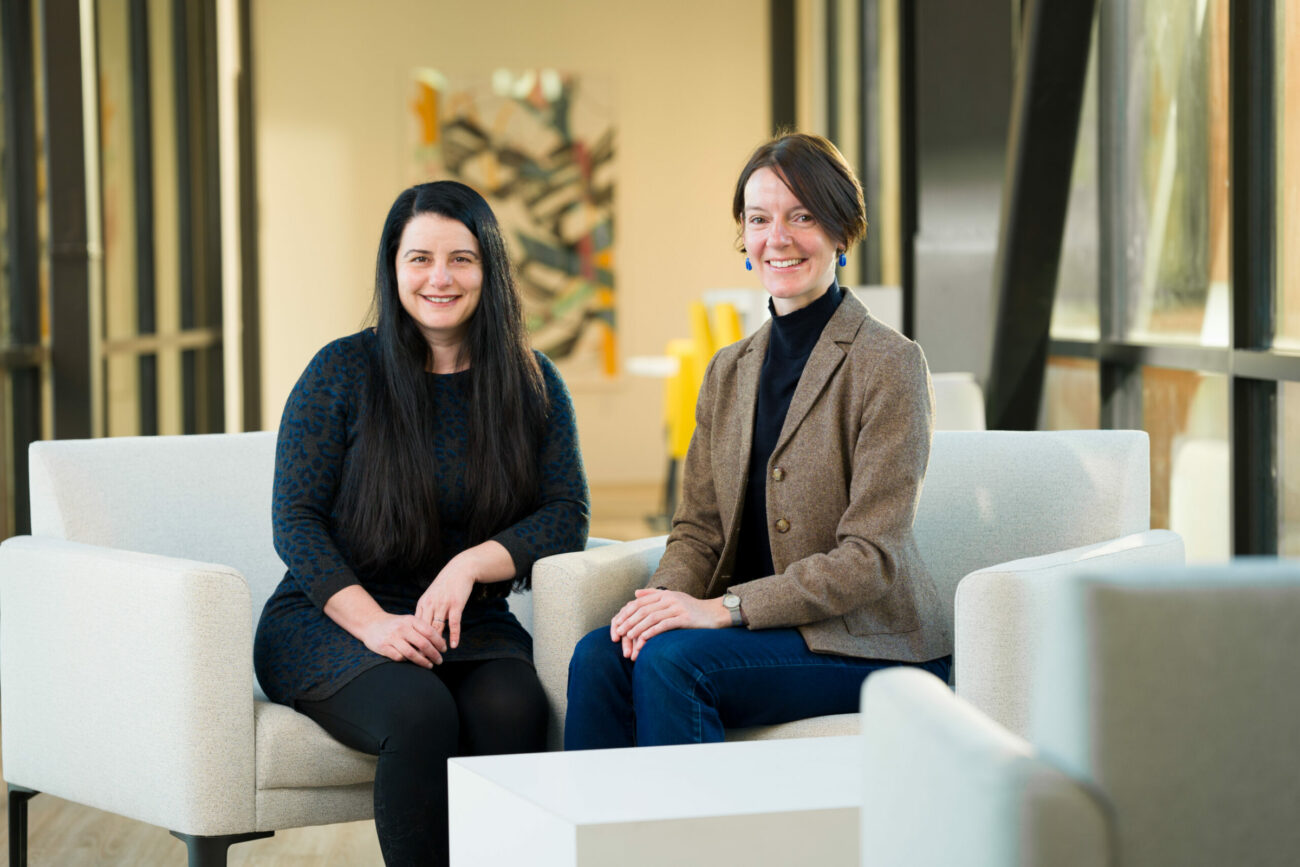

Sophie Longueville January 24, 2024
I wish that USU have a social work online program. Since criminal justice is online already that would do a good blend and offer for online student like me.